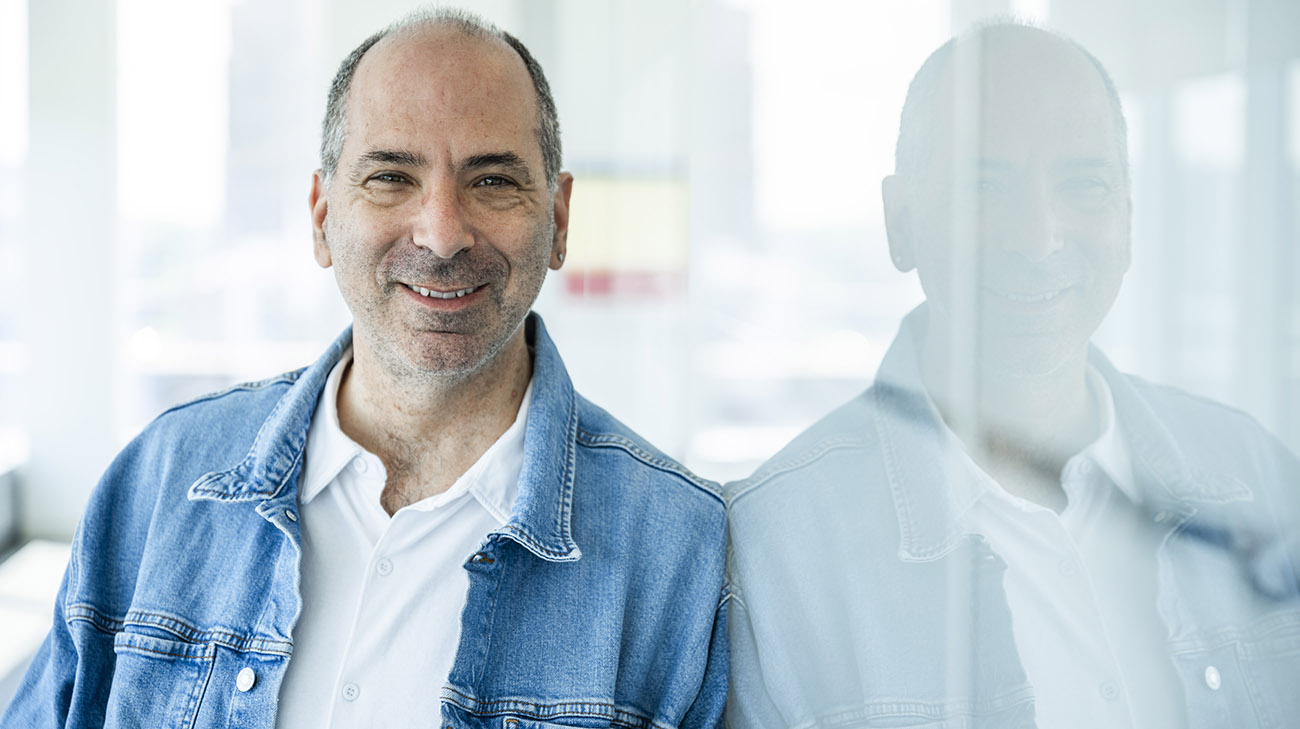
Rob Nosanchuk watched proudly as his youngest child, Hope, was awarded a diploma for graduating from Shaker Heights High School in June 2024. It was a milestone event the 54-year-old rabbi thought he might never have an opportunity to see, after being diagnosed with stage 4 metastatic melanoma in 2019.
“These are exciting times for me,” says Rob, who is also reveling in his 25-year-old son Zachary’s success as deputy press secretary for the U.S. Department of Housing and Urban Development. “When I was diagnosed, I just wanted to see Hope begin high school. I didn’t imagine I’d be able to see her graduate.”
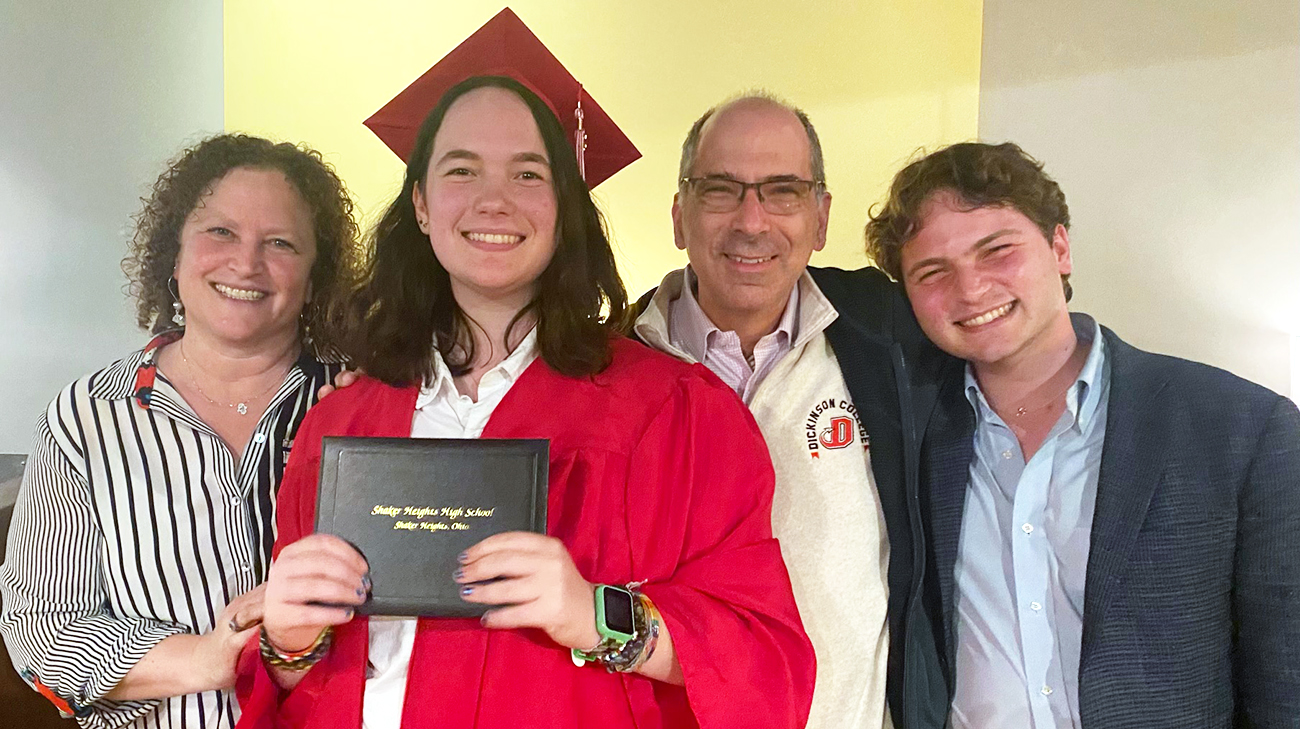
Joanie, Hope, Rob and Zachary (left to right) celebrating Hope's high school graduation in June 2024. (Courtesy: Rob Nosanchuk)
Rob serves as senior rabbi at Anshe Chesed Fairmount Temple, in Beachwood, OH, and was appointed senior rabbi in the founding of Congregation Mishkan Or in early 2024. He is thrilled to have recently experienced a celebratory milestone himself. After 24 months of immunotherapy to treat an aggressive form of skin cancer, followed by Cleveland Clinic Cancer Institute oncologists consistently monitoring him for three years, Rob reached complete remission in May 2024 –for five years he has not had new evidence of disease in the years ensuing his treatment.
However, he continues to face lingering side effects from checkpoint inhibitors, a form of immunotherapy that, in essence, trains the immune system to kill the deadly cancer cells even after treatment has ended.
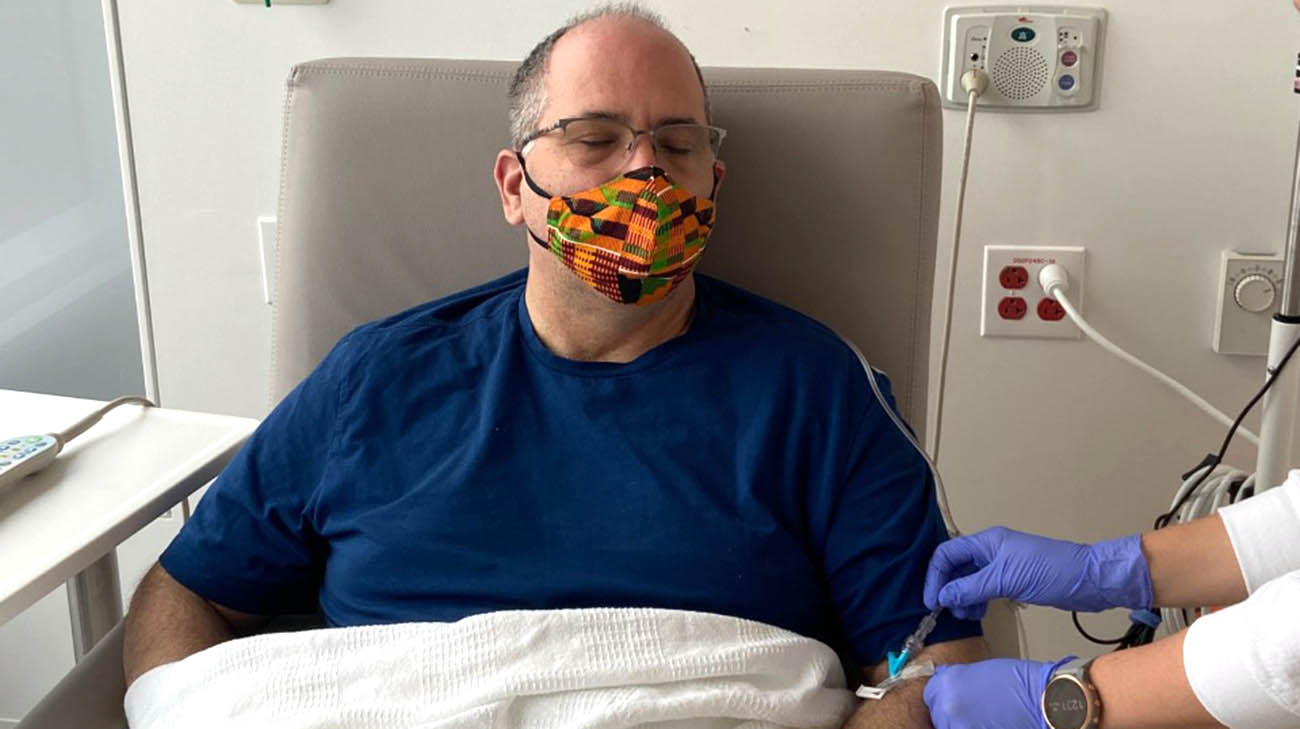
Rob underwent 24 months of immunotherapy at Cleveland Clinic to treat his melanoma. (Courtesy: Rob Nosanchuk)
“With side effects, I was somewhat of an overachiever,” kids Rob, noting some patients who receive immunotherapy experience no side effects or very few. “It has caused inflammation in my joints, colon and thyroid, caused permanent adrenal insufficiency, and neurological and cognitive impairments. But that doesn’t change the fact my number one emotion is gratitude. I was in the hands of the best oncologists and specialists, and they made sure I have gotten the most effective treatment possible at every stage.”
Rob’s medical oncologist is Lucy Boyce Kennedy, MD, who explains she serves as a type of “quarterback” in coordinating the collaborative care Rob has received from what he calls his “ologists” -- neurologists, endocrinologists, rheumatologists, gastroenterologists and psychologists. This army of experts have worked together to effectively treat his cancer and immune-related adverse effects (irAEs) from the rapidly evolving and highly-successful form of cancer treatment that stimulates the body’s immune system to attack cancer cells.
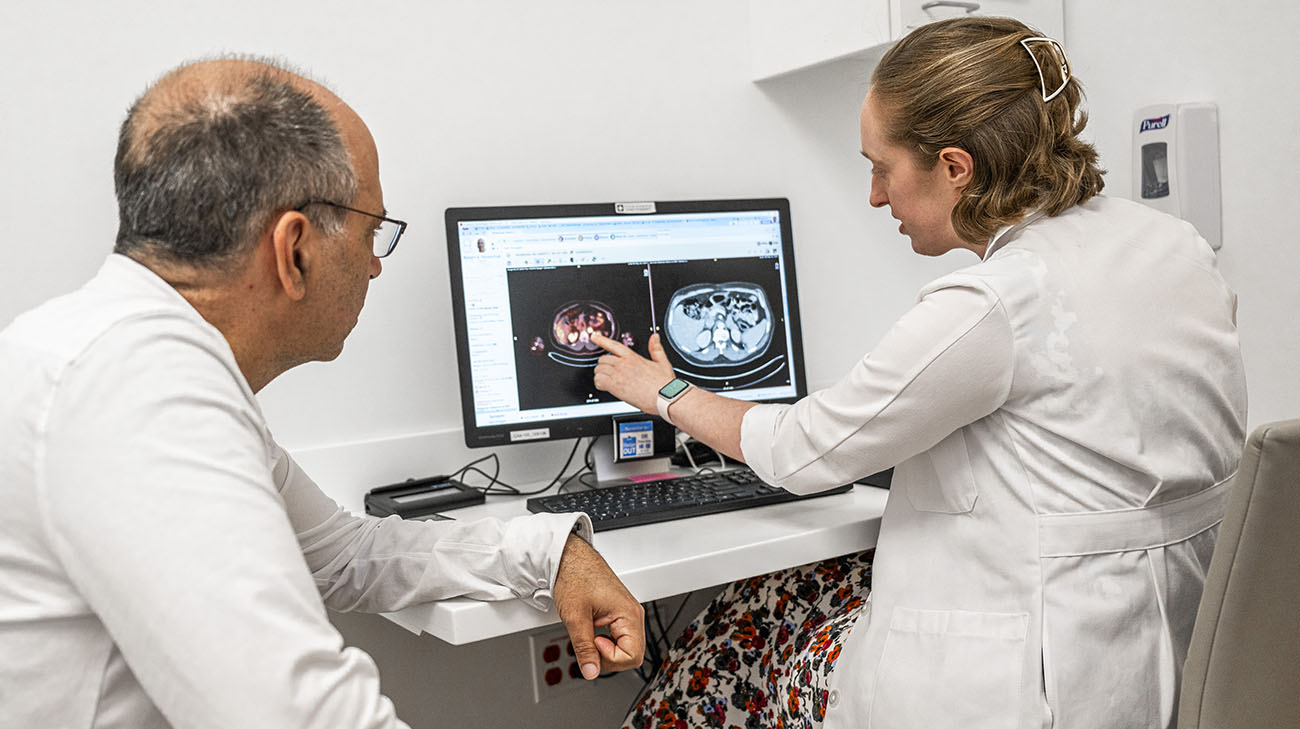
Rob during a follow-up appointment with Dr. Kennedy in May 2024, at Cleveland Clinic. (Courtesy: Cleveland Clinic)
“Every day we learn more about what we should be doing for these patients in the long term and how to counsel them about the benefits and risks of treatment,” says Dr. Kennedy. “While some patients may get irAEs, and some of those side effects may be permanent, immune therapies have tremendously improved survival in patients with metastatic melanoma. There is even potential for some individuals – like Rob –to be long-term survivors.”
Chemotherapy was the de facto treatment for melanoma for decades, however, the 5-year survival rate was about 10%. Immunotherapy, on the other hand, has increased the 5-year survival rate to more than 60%.
While skin cancer is often discovered by noticing lesions on the face, neck or torso, Rob – who visits a dermatologist regularly –had a form known as metastatic melanoma with unknown primary (MUP), which means there was no obvious site on the skin where it originated. It only occurs in about 3% of melanoma cases.
In Rob’s situation, his symptom was severe abdominal pain. A visit to Cleveland Clinic main campus emergency department included diagnostic scans revealing a suspicious mass near his adrenal glands. A needle biopsy several days later revealed the shocking diagnosis –melanoma. It had already spread into his abdomen.
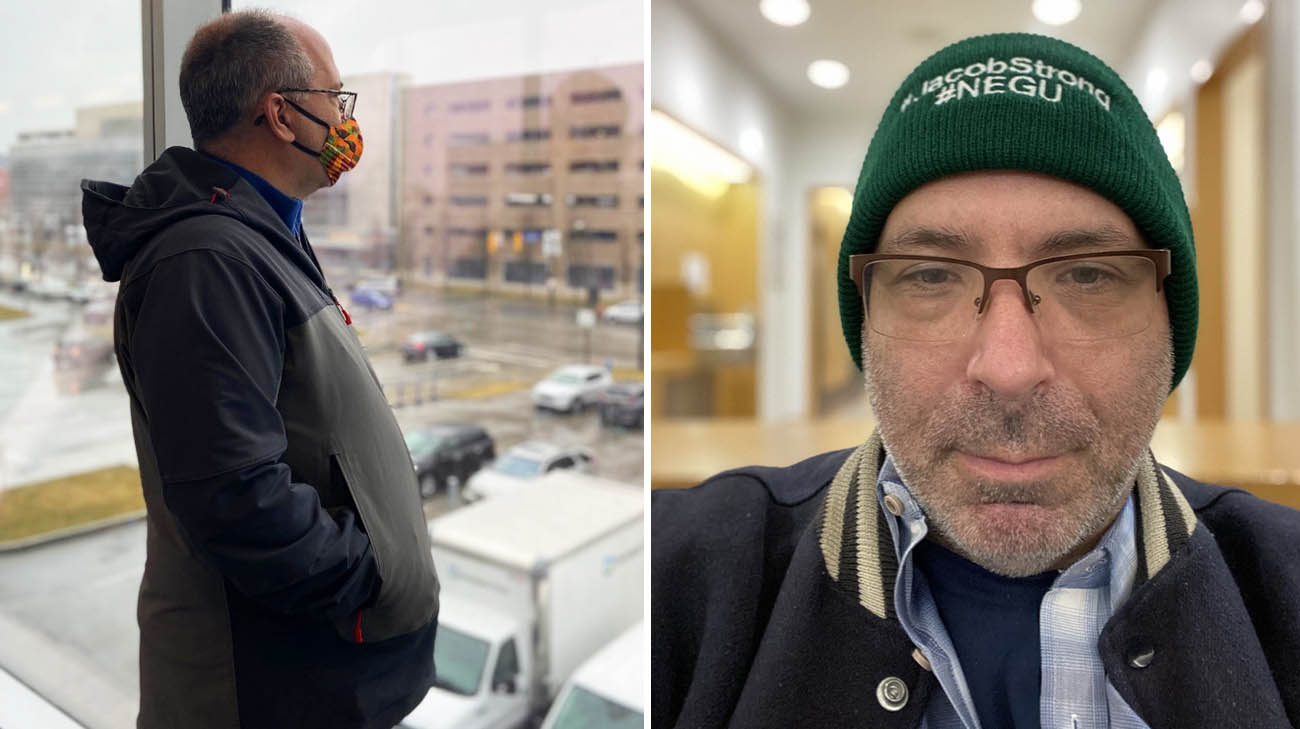
Doctors diagnosed Rob with stage 4 melanoma in April 2019. (Courtesy: Rob Nosanchuk)
“People ask me if I’m angry at God I got cancer. I answer I’m grateful to God for finding out I had cancer in time to be able to fight it,” says Rob, who credits his wife Joanie Berger, his family and friends, and a vast community of supporters for bolstering him through his arduous journey with their prayers and good wishes.
While continuing his professional duties as a rabbi, Rob suspended many of his other daily activities, focusing his attention on disease treatment and management. As he wrote in an email to his congregation and friends announcing his diagnosis, “I know this news is not easy to hear or read. It certainly is difficult to write. I have a battle against cancer to fight, and I am going to beat this with your help.”
“It’s been very challenging,” says Rob. “But I don’t think I truly understood before what it means to be held by others in prayer and attention and reflection. It’s a very powerful feeling.”
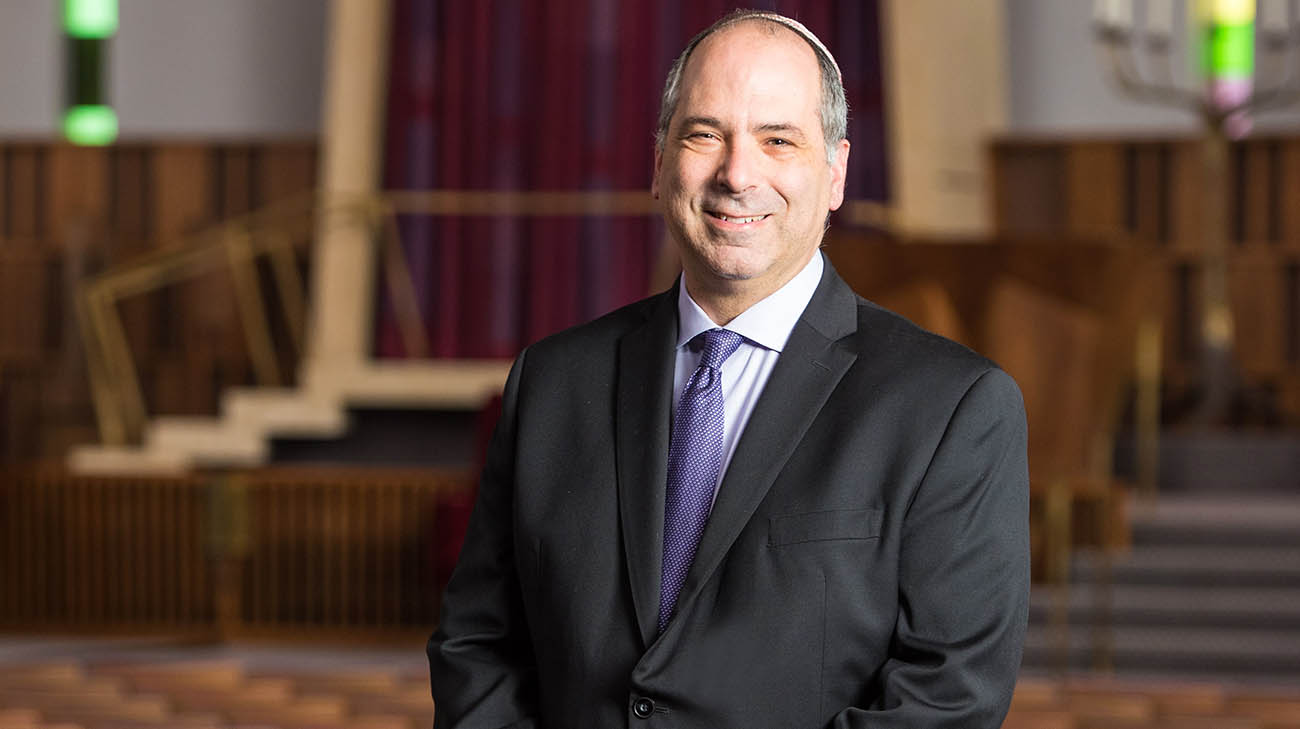
Rob serves as senior rabbi at Anshe Chesed Fairmount Temple, in Beachwood, OH, and was appointed senior rabbi in the founding of Congregation Mishkan Or. (Courtesy: Rob Nosanchuk)
He holds his team of Cleveland Clinic caregivers in high regard, for guiding him with patience and compassion throughout his varied treatments, especially when he encountered unexpected medical difficulties. Under the auspices of Cleveland Clinic specialists, he’s completed a year-long rigorous cardiac rehabilitation regimen, engaged in cognitive therapy to address persistent neurocognitive deficits, and through acupuncture and advancements in rheumatological care, reduced joint inflammation and neuropathy.
Inspired to ease the burden many patients face in balancing multiple appointments in treating irAEs, Cleveland Clinic established a first-of-its-kind multidisciplinary Oncology Pharmacovigilance Clinic in 2023. The clinic helps patients experiencing irAEs to get timely access to their oncologist and appropriate subspecialists, often coordinated for same-day care.
Says Dr. Kennedy, “Rob’s experience is a great example of how the clinic can be effective for patients who have multiple organ systems affected with irAEs. We have medical oncology coming together with multiple subspecialists, at the same time, for coordinated care.”
Rob has also made great strides to help ease the journey for other patients with melanoma. In 2021, he and Joanie established the Nosanchuk-Berger Skin Cancer and Melanoma Research Fund at Cleveland Clinic. To date, it has raised over $126,000 to support melanoma and irAE research and to improve the patient experience.
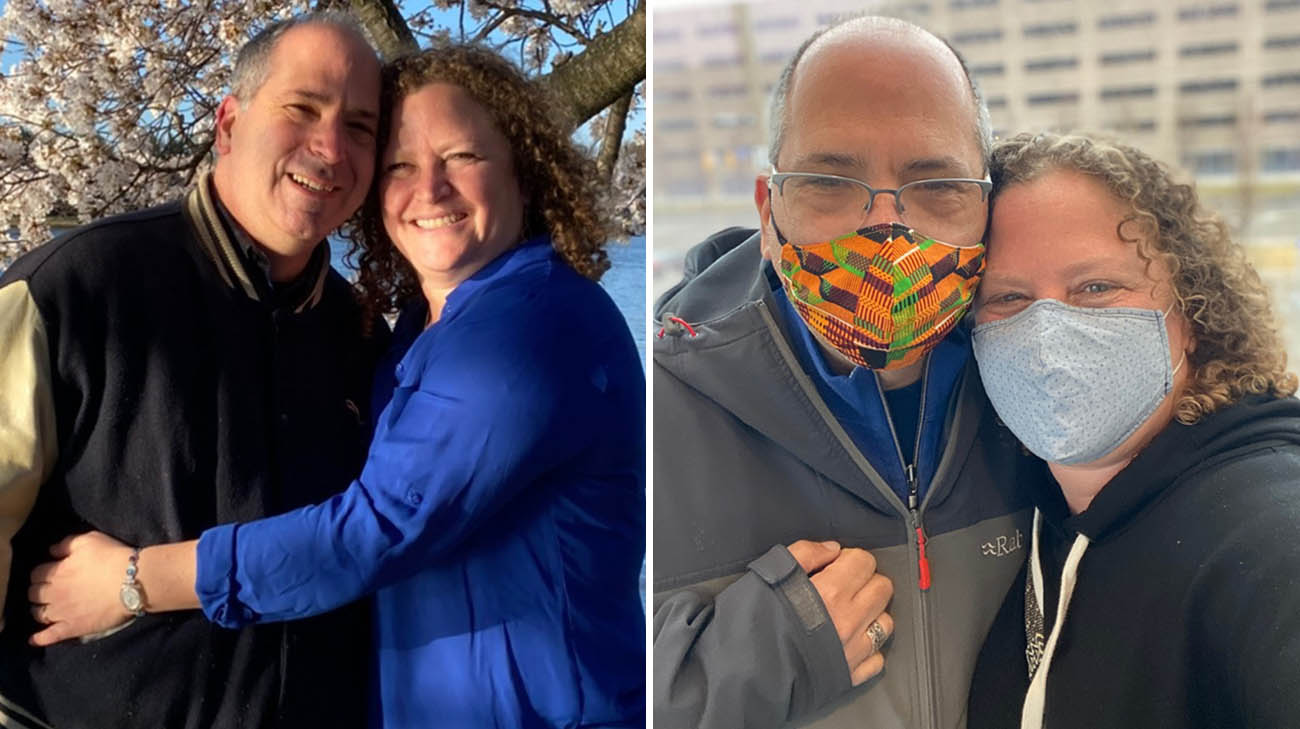
Rob remains incredibly grateful to his wife of 25 years, Joanie, their family, friends and the community for their continued support throughout his journey. (Courtesy: Rob Nosanchuk)
Explains Rob, “Somebody before me was funding research and care, and I feel incredibly indebted to all who were involved in those efforts. I feel moved to offer anything I can to help open the door for the patients and caregivers who come behind me.”
While his irAE-related treatments will continue indefinitely, Rob avows those struggles don’t compare to the seemingly dire prognosis he potentially faced when diagnosed more than five years ago.
“I don’t dwell on the likelihood of cancer recurrence, but I don’t pretend the possibility doesn’t exist,” states Rob. “If cancer does come back, or any other health event, I want to be physically and mentally healthier and stronger for it. And I am on that path.”
Related Institutes: Cleveland Clinic Cancer Center

